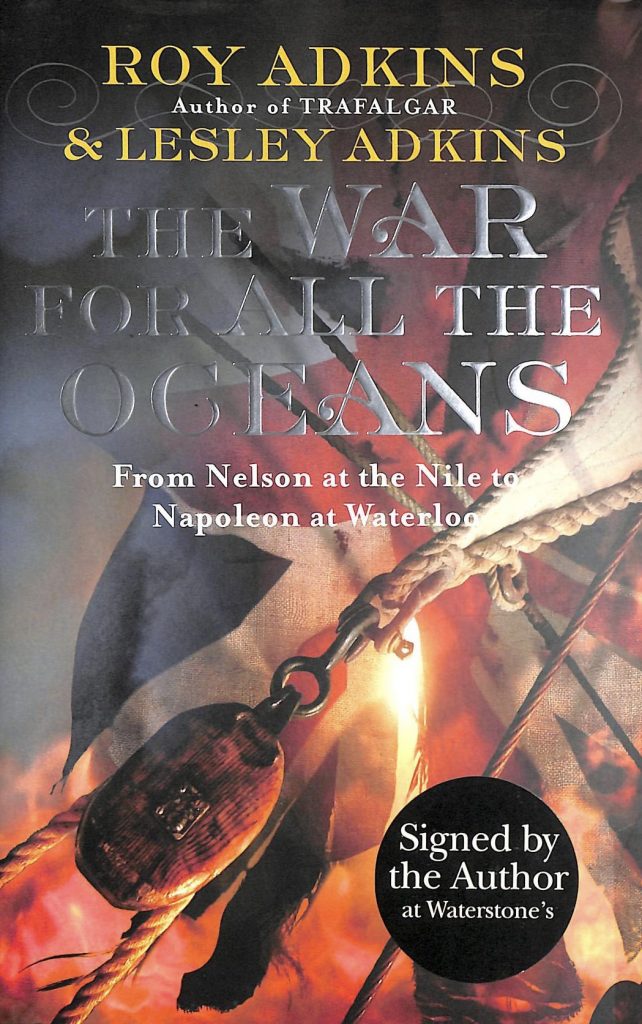

This is a fantastic book. Worthy of the rare but coveted six stars.
In some respects it’s quite surprising that there’s so much interesting naval history to be told, when one remembers that Nelson’s 1805 victory at Trafalgar meant there wasn’t another major maritime engagement ‘twixt then and the end of the era, at Waterloo, in 1815.
The book commences with three chapters that culminate in the ill-starred fate of Napoleon’s Eastern adventure. Once again it’s Nelson who puts the kibosh on ‘Little Boney’s’ plans, at the Battle of Aboukir.
Remarkably, despite the period that Trafalgar indubitably represents, there is still much of great interest to be told, as Britain and France carry out global economic warfare, Bonaparte with his Continental System, and England with her blockading and her growing global hegemony at sea.
It’s quite revealing and surprising, given how The Napoleonic Wars as a whole have come down to us as a vastly oversimplified tale of the British David vanquishing the ‘Corsican Upstart’s’ Franco-European Goliath, to learn how often we bungled things.
And the British Royal Navy, as much as it formed the oaken walls protecting Fortress Albion, was complicit in some of these disasters. (?)’s Buenos Aires fiasco is dwarfed by the almost D-Day like (in size) but also Dunkirk like (in losses) Walcheren affair.
Add to all this Britain’s nautical rise to ascendancy in both the East and West Indies, and eventual supremacy in the Med and Adriatic, and even accounting for such mishaps as the 1811 Baltic convoy disaster (the biggest loss of life of the period being attributable to Nature, not war!), and a brewing stand-off that develops into war with the US (again!), and it’s apparent that it’s only natural that this era is so ripe for vivid storytelling in the age sail.
The colour and drama leant to the overall narrative, excellent as that is in itself, by the supremely well chosen and deployed firsthand testimonies, can’t be overstated. This is a rollicking good read. History at its dramatic finest.
